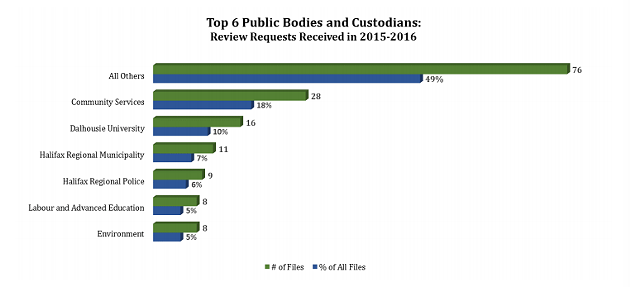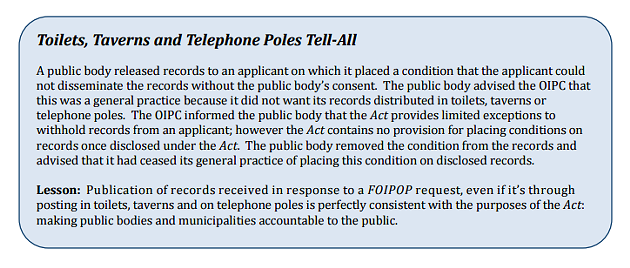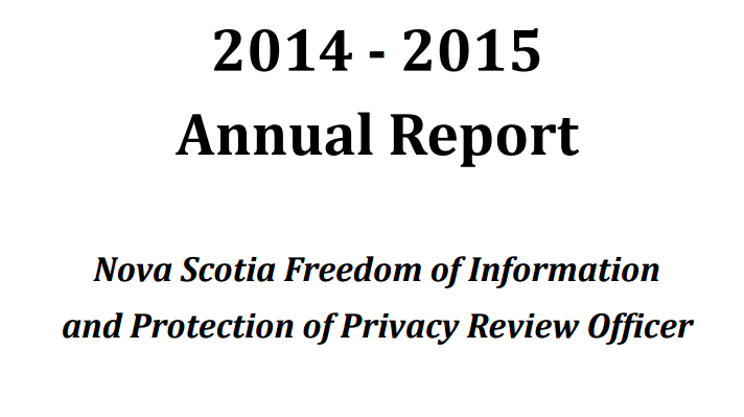
Commissioner Catherine Tully published on Tuesday her office’s annual report on Nova Scotia’s access to information and protection of privacy laws. It found that personal information held by public bodies was “likely breached between 10 and 154 times” over the last year.
One of those cases involved the Premier’s office. Former chief of staff Kirby McVicar revealed private health information about MLA Andrew Younger to the media. McVicar later resigned over the incident.
The Office of the Information and Privacy Commissioner (OIPC) says that was its first ever self-initiated privacy investigation into a government department, but only because government department’s aren’t required to report those breaches to the OIPC—or to anyone.
“The reason that this was the first such investigation in 22 years is that government departments are not required to report privacy breaches to this office,” writes Tully in her report. “Nor, indeed, are they required to give notice to individuals when a government department has committed a privacy breach. This is a significant shortcoming of our laws.”
Tully writes that her office is notified of minor breaches of privacy, but not major ones, and she’s “increasingly concerned” about those breaches that go unreported.
The privacy office claims the number of minor breaches of private health information increased 75 percent this past year. It’s currently impossible to determine if there was an equal increase in major breaches.
According to the annual report, there was also a 41 percent increase in new cases for the OIPC over this past year, along with a jump of 569 percent (from four to 58) in external consultations about file requests.
Despite the heavier workload, the office boasts that it’s resolved 10 percent more complaints than 2014/15, with an average turnaround time of 65 days.
The office’s interventions have also lead to the Department of Community Services making more family history available to former foster children, and caused four public bodies to disclose contract and funding information over the objection of third-party corporations.
“This type of information is very important for ensuring that taxpayers know how their money is being spent,” Tully says in her report. “It is a hallmark of accountability and transparency that this type of financial information is made available to citizens.”
Along with warnings about privacy breaches and the perpetual call to modernize Nova Scotia’s access to information laws, the annual report says that the OIPC will spend the next year conducting an evaluation on the use of video surveillance by public bodies and municipalities.
You can read the full report here, including the above mentioned details, a breakdown of FOIPOPs being filed and fun information like how Nova Scotian universities are increasingly performing criminal record checks on prospective students. Or how one government department was reluctant to give out public documents for fear the information would be distributed “in toilets, taverns or telephone poles.”


















